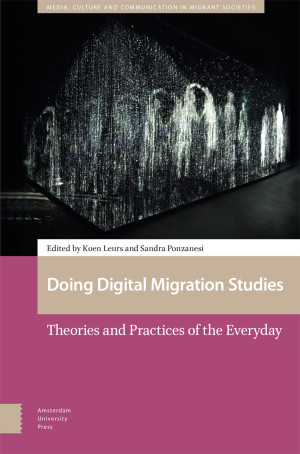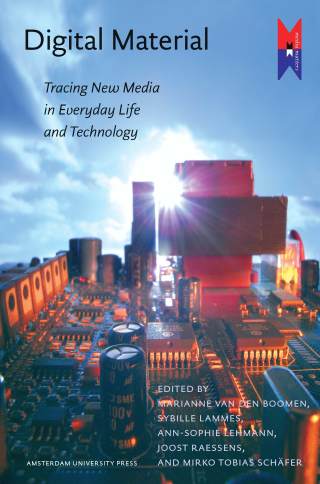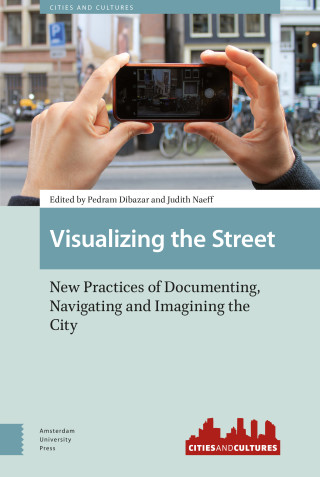Prelims
Doing Digital Migration Studies: Introduction - Koen Leurs and Sandra Ponzanesi
Section I Creative practices
Introduction to Section I: Creative Practices – Karina Horsti
Chapter 1. Against and Beyond Mimeticism: A Cinematic Ethics of Migration Journeys in Documentary Auto-Ethnography – Nadica Deni.
Chapter 2. Archival Participatory Filmmaking in Migration and Border Studies – Irene Gutiérrez Torres
Chapter 3. Embodying Data, Shifting Perspective: A Conversation with Ahnjili Zhuparris on Future Wake – Rosa Wevers with Ahnjili Zhuparris
Section II Digital Diasporas and Placemaking
Introduction to Section II: Digital Diasporas and Placemaking – Mihaela Nedelcu
Chapter 4. Friendship, Connection and Loss: Everyday Digital Kinning and Digital Homing among Chinese Transnational Grandparents in Perth, Australia – Catriona Stevens, Loretta Baldassar and Raelene Wilding
Chapter 5. An Exploration of African Digital Cosmopolitanism – Fungai Machirori
Chapter 6. YouTube Became the Place Where “I Could Breathe” and Start “to Sell my Mouth”: Congolese Refugee YouTubers in Nairobi, Kenya – Marie Godin and Bahati Ghislain
Section III Affect and Belonging
Introduction to Section III: Affect and Belonging – Athina Karatzogianni
Chapter 7. Digital Communication, Transnational Relationships and the Making of Place Among Highly Skilled Migrants during the Covid-19 Pandemic – Elisabetta Costa
Chapter 8. When Immovable Bodies Meet Unstoppable Media Circulation: The Aporetic Body in Digital Migration Studies – Nishant Shah
Chapter 9. Queer Digital Migration Research: Two Case Studies – Yener Bayramo.lu
Section IV Visuality and Digital Media
Introduction to Section IV: Visuality and Digital Media – Giorgia Aiello
Chapter 10. Migrant Agency and Platformed Belongings: The Case of TikTok – Daniela Jaramillo-Dent, Amanda Alencar and Yan Asadchy
Chapter 11. Affective Performances of Rooted Cosmopolitanism Through Facebook During the Festival International de Folklore et de Percussion in Louga, Senegal – Estrella Sendra
Chapter 12. Situating the Body in Digital Migration Research: Embodied Methodologies for Analysing Virtual Reality Films on Displacement – Moé Suzuki
Section V Datafication, Infrastructuring and Securitization
Introduction to Section V: Datafication, Infrastructuring and Securitization – Saskia Witteborn
Chapter 13. The Weaponization of Datafied Sound: The Case of Voice Biometrics in German Asylum Procedures – Daniel Leix Palumbo
Chapter 14. McKinsey Consultants and Technocratic Fantasies: Crafting the Illusion of Orderly Migration Management in Greece – Lud.k Stavinoha
Chapter 15. Undocumented and Datafied: Anticipation, Borders and Everyday Life – Kaarina Nikunen and Sanna Valtonen
Section VI
Conclusions





